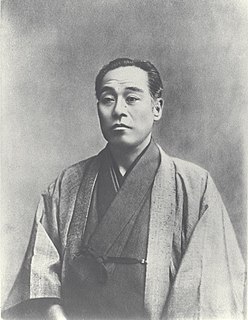A Quote by William Godwin
The virtue of a human being is the application of his capacity to the general good.
Quote Topics
Related Quotes
Virtue is something you have to get good at, like playing the trombone or tolerating bores at parties. Being a virtuous human being takes practice; and those who are brilliant at being human (what Christians call the saints) are the virtuosi of the moral sphere - the Pavarottis and Maradonas of virtue.
As early as 1776, [John Adams] expressed his doubts about America's capacity for virtue. "I have seen all along my Life, Such Selfishness, and Littleness even in New England, that I sometimes tremble to think that, altho We are engaged in the best Cause that ever employed the Human Heart, yet the Prospect of success is doubtfull not for Want of Power or of Wisdom, but of Virtue."
Jesus Christ lives. He is our Savior, our Redeemer. He is a glorious, resurrected being. He has the capacity to communicate love that is so powerful, so overwhelming as to surpass the capacity of the human tongue to express adequately. He gave His life to break the bonds of death. His Atonement made fully active the plan of happiness of His Father in Heaven.
Prejudice is of ready application in the emergency; it previously engages the mind in a steady course of wisdom and virtue, and does not leave the man hesitating in the moment of decision, skeptical, puzzled and unresolved. Prejudice renders a man's virtue his habit; and not a series of unconnected acts. Through past prejudice, his duty becomes part of his nature.
Those laws, being forged for universal application, are in perpetual conflict with personal interest, just as personal interest is always in contradiction with the general interest. Good for society, our laws are very bad for the individuals whereof it is composed; for, if they one time protect the individual, they hinder, trouble, fetter him for three quarters of his life.
In its broad sense, civilization means not only comfort in daily necessities but also the refining of knowledge and the cultivation of virtue so as to elevate human life to a higher plane... It refers to the attainment of both material well-being and the elevation of the human spirit, [but] since what produces man's well-being and refinement is knowledge and virtue, civilization ultimately means the progress of man's knowledge and virtue.
Money cannot be applied to the *general welfare*, otherwise than by an application of it to some *particular* measure conducive to the general welfare. Whenever, therefore, money has been raised by the general authority, and is to be applied to a particular measure, a question arises whether the particular measure be within the enumerated authorities vested in Congress. If it be, the money requisite for it may be applied to it; if it be not, no such application can be made.



































